‘Backstage Leadership: The Invisible Function of Really Productive Leaders’, by Charles Galunic
The late organisational theorist James March, who happened to educate Charles Galunic at Stanford, utilized to say that leadership was a delicate blend of “poetry and plumbing”.
Galunic’s reserve does not neglect the poetry. He writes effectively about the responsibility of leaders to established powerful visions for their groups and market them even though in the glare of the public spotlight. But his emphasis is on the prosaic plumbing and electrics. The “creating, retaining and integrating” of elementary processes this sort of as developing talent, crafting lifestyle, handling contradictions — “are the vital, albeit backstage, from time to time invisible, get the job done of business enterprise leaders”.
This is not a reserve about how to tackle the individual worries of managing out of a pandemic or via a economic downturn — it was created in advance of lockdown. There is, even so, plenty below to aid difficult-pressed leaders in a disaster, richly illustrated with examples from business enterprise, activity and society.
For occasion, Galunic indicates “scanning and sensemaking” — the method of capturing signals and decoding them — are vital strategies to uncertainty. He also revisits a further Marchian idea about managing the contradiction in between “exploration” (which include innovation and creation) and “exploitation” (the unlimited search for further more efficiency in existing places of business enterprise). The goal? An “ambidextrous” leadership model that balances “conflicting and normally paradoxical forces”.
‘Winning Now, Winning Later on: How Providers Can Acquire in the Quick Phrase Whilst Investing in the Lengthy Term’, by David Cote
When David Cote turned main government of Honeywell of the US in 2002, he took above from Larry Bossidy, a challenging-nut boss, who had created a business enterprise bestseller named Execution: The Discipline of Acquiring Things Completed. It is a shock, then, to discover from his outstanding and detailed account of how to operate an industrial business enterprise that the enterprise Cote inherited “needed to execute better”. Driving the “facade” was “a practice wreck . . . on the verge of failure”.
As for having items done, “just get it done” was what the finance section explained to the business enterprise divisions when they have been having difficulties to make demanding quarterly targets. It led to “untrammelled brief-termism and a compromised strategic scheduling process”.
One particular lesson may well be not to examine books created by ostensibly thriving main executives, but Cote’s could be the exception that proves that rule.
It incorporates its share of self-congratulation and instead far too numerous nods to former colleagues. On the other hand, Honeywell had improved in price from $20bn to $120bn by the time Cote still left in 2018, so he has acquired the appropriate to boast a little. Winning Now, Winning Later on is also rescued by just sufficient emphasis on blunders designed and classes learnt, and a large dose of remarkably realistic advice on leadership, which include how to journey out a economic downturn.
Over all, Cote underlines how to test to meet the central business enterprise challenge of investing for the future and nonetheless attaining brief-term final results, “accomplishing two seemingly conflicting items at the same time”.
‘Future-Evidence Your Business’, by Tom Cheesewright
Even in advance of the world wide pandemic, firms have been functioning in a entire world of frequent adjust and disruption. Tom Cheesewright writes that these disrupting traits can past above many years, even though there are other quicker waves of adjust layered above these, enabled by globalisation and engineering.
Below the applied futurist draws on his working experience of serving to organisations to react to innovation to present a survival guide for managing a thriving business enterprise in an progressively intricate landscape.
Aimed at firms leaders, or all those who aspire to guide, Cheesewright states it is vital to “reshape your business enterprise for an age wherever adaptability to tomorrow’s challenge is a improved predictor of success than becoming properly optimised to today’s conditions”.
It is neatly break up into a few sections. To start with, he addresses how to framework a future-proof business enterprise, a method that begins with a adjust in mindset. The writer believes that existing brief-termism focuses on “immediate success” not “sustainable success”, so it is vital to reset the anticipations of what leadership appears like so the concentration is on “adaptation”, instead than “optimisation”.
The 2nd portion guides leaders on “how to see the future”. Below Cheesewright offers some very simple methods for examining the in close proximity to and distant future, which will aid leaders define additional obviously a direction for their business enterprise and aid establish opportunity road blocks.
The third part appears at how firms can be most effective organized for a “rapid response”. This focuses on choice producing: how to make the appropriate selections additional quickly but also comprehension that the most effective selections are not generally the fastest. “Sometimes, slower, info-centered, strategic selections are essential. Recognizing when to inform the big difference is vital,” he writes.
Productive choice producing is also about empowering men and women and devolving some choice-producing electricity to all those further more down the line.
The reserve is extremely complete, to the stage — and only one hundred fifty web pages. And even though the writer argues he can not ensure that your business enterprise will be the a person to survive and thrive he can “help you to enhance the odds dramatically”.
‘The Art of Becoming Indispensable at Function: Acquire Affect, Defeat Overcommitment and Get the Appropriate Things Done’, by Bruce Tulgan
This reserve is aimed at serving to us all become a person of all those “go-to people” that every enterprise has — all those whose wisdom, efficiency and quick way with colleagues is underpinned by organization knowledge in their place of get the job done.
It will, mainly because of its title, specially attraction to all those who presently recognise by themselves as “people pleasers” and whose MO at get the job done is to get traction via co-operation and allure. But Tulgan’s quick to digest advice (alone charmingly presented) is beneficial to everyone: “Navigating collaborative interactions [at get the job done] is not going absent. And doing that occupation extremely, extremely effectively is how correct go-to men and women, in the real entire world, win real influence, defeat above dedication and get the appropriate items done.”
Tulgan, who is an adviser to business enterprise leaders, is superior on suggestions for steering clear of saying of course when you want to say no — steering clear of above dedication, in other words and phrases, which is a substantial opportunity difficulty for the organisation’s go-to human being. Mainly because in a collaborative entire world, the vital to influence is to get the job done across groups, in tune with your boss but not constrained to vertical choice producing. Working horizontally or diagonally across other groups and initiatives necessitates complex abilities — and also men and women administration.
And the vital to that? Not expecting anything back. There’s no quid pro quo for go-to men and women. “The correct go-to human being does not hold a tally sheet -real or imagined — of equivalent favours to be traded for inducing colleagues to choose certain selections or actions. If you feel in real influence, you serve many others mainly because that’s what is appropriate and that’s what results in the most price for every person, in the brief term and the lengthy term.”
In restricted post-disaster workplaces, becoming another person dependable and proficient is going to become evermore crucial. Tulgan’s reserve is well timed, suitable and desirable.
‘Designing your Function Existence: How to Thrive and Transform and Locate Pleasure at Work’, by Invoice Burnett and Dave Evans
We are all having utilized to a new get the job done-existence equilibrium in an period of coronavirus lockdown. For numerous of us working from dwelling, advice on how to come across that means and joy is welcome when the each day commute is a wander downstairs and the motion picture Groundhog Working day feels additional like a documentary.
Invoice Burnett and Dave Evans concentration on the uncertainties of the fashionable age and the want to transition in between roles, which was an problem in advance of the coronavirus disaster. On the other hand, the economic upheaval created by the pandemic will no question make this reserve an eye-catching proposition for numerous men and women now looking at a radical adjust in lifestyle or just questioning what get the job done is all about.
The most significant wrestle this reserve may possibly have is becoming picked from among the numerous titles presently created about get the job done-existence equilibrium. But the authors test to aid their readers in a extremely personable and realistic way: Evans and Burnett present it as a adhere to up to their previous reserve, Building Your Existence, about acquiring purpose in your get the job done. “This reserve is about producing it real,” they write.
One particular of these vital realistic classes is to be satisfied with what you have these days, not what you would like to have tomorrow. If that is not a beneficial lesson for existence in coronavirus lockdown, what is?
‘You’re About to Make a Horrible Mistake: How Biases Distort Selection-Generating — and What You Can Do to Combat Them’, by Olivier Sibony
We have all designed negative selections, but does that make us a negative leader? Not according to Olivier Sibony, a professor and qualified in business enterprise strategy, whose reserve takes advantage of behavioural science to reveal why all men and women, even wonderful leaders, are very likely to do the incorrect issue, normally mainly because of cognitive biases.
This is a reserve crammed with some interesting, and scary, stories of choice-producing failures. It helps make dry scientific ideas in administration principle, this sort of as affirmation bias and heuristics, additional obtainable. Some of these tales are effectively identified, this sort of as online video rental enterprise Blockbuster’s failure to invest in Netflix, but they are nevertheless beneficial in this context.
The reserve is aimed at corporate leaders with sufficient self-consciousness to realise that they make negative selections in portion mainly because of their have biases, but it offers reassurance and advice to all of us with selections to make. It is also an quick examine with actionable advice.
It may well not be superior for all those looking through this reserve to get consolation from their failure, supplied the higher price tag of negative choice producing by enterprise heads. On the other hand, insight into why we may possibly have designed incorrect selections in the previous is surely worthwhile.
Probably the most comforting information of this reserve is that success is never ever down to folks — the mistaken perception that propped up the cult of Steve Employment at Iphone maker Apple. The flip facet of this is that you are not a negative leader just mainly because you make negative selections. And superior choice makers do not act by itself: they are the architects of superior choice processes, adopted by a team.





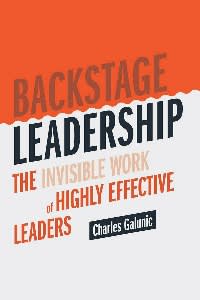
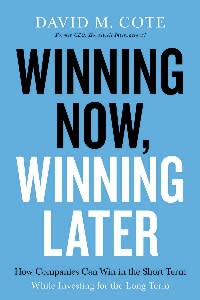
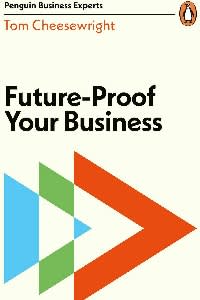
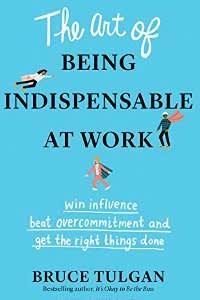
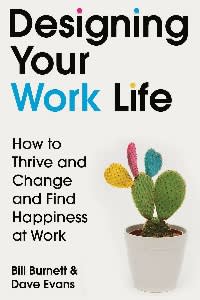
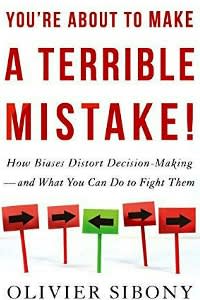
More Stories
Telecom POTS Line Project Risk Management
How to Make Money and Become Richer Every Day
New Small Business Loans Starter Guide: What Are Your Options for Financing As a New Business Owner?